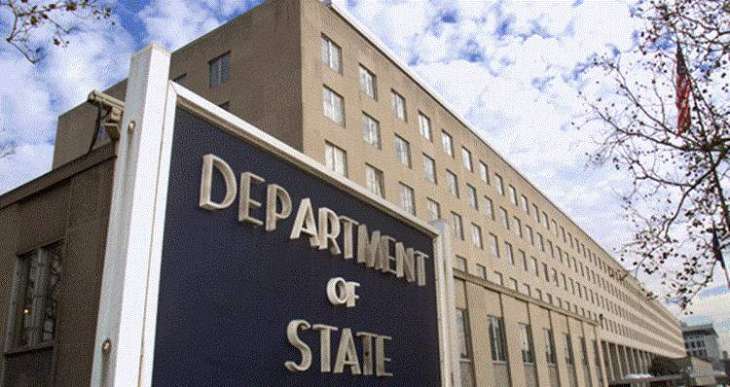The United States is of the opinion the truce in Libya has beginning to fray wear our and urges external actors, including Russia, to live up to their commitments to disengage to cement the stabilization, Deputy Assistant Secretary of State for European and Eurasian Affairs Christopher Robinson said on Wednesday
WASHINGTON (Pakistan Point News / Sputnik - 12th February, 2020) The United States is of the opinion the truce in Libya has beginning to fray wear our and urges external actors, including Russia, to live up to their commitments to disengage to cement the stabilization, Deputy Assistant Secretary of State for European and Eurasian Affairs Christopher Robinson said on Wednesday.
"The reduction in violence that came into effect on January 12 has begun to fray. For the UN to succeed in converting the current shaky truce into an enduring ceasefire, external parties must uphold the commitment they made January 19 in Berlin to freeze deployments of personnel and equipment," Robinson told a Senate Foreign Relations Committee hearing on US policy toward Libya.
On January 19, Berlin hosted an international conference on Libyan reconciliation attended by 16 states and entities, including Turkey, Russia and the United States. The participants adopted a joint communique pledging to refrain from assisting the warring parties and observing the arms embargo on Libya.
Robinson said the external actors involved in Libya, including Russia, have not followed through on this commitment.
"External support to the Libyan parties, including Russia's military support to Haftar, is the Primary factor allowing the conflict to drag on and metastasize into a broader proxy war," Robinson said.
In January, Russian President Vladimir Putin said that even if Russian citizens are fighting in Libya, they did not represent the Russian government.
Libya has experienced severe political crisis since 2011 after US- and EU-supported Islamic extremists ousted and murdered the country's leader Muammar Gaddafi.
Since, Libya has been split into two rival administrations: The UN-backed Government of National Accord (GNA) that controls Tripoli and parts of western Libya, and the government supported by the Libyan National Army (LNA) that holds the eastern part of the country.




